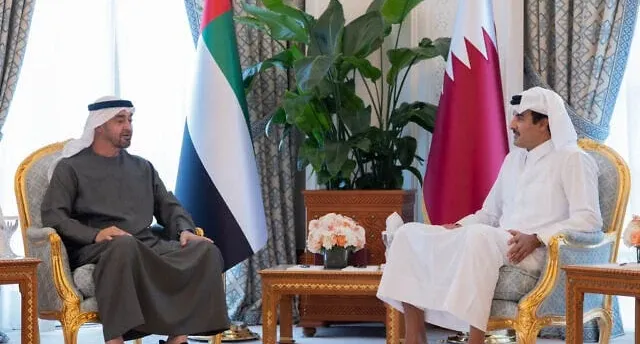
Doha Summit Provides Key Opportunity for Unified Arab Response to Israeli Aggression: Experts
The emergency Arab League summit in Doha presents a pivotal moment for fostering a unified Arab response to the escalating Israeli aggression, particularly in the context of the ongoing conflict in Gaza. Experts emphasize the urgency for coordinated diplomatic action and a clear articulation of Arab demands to de-escalate the crisis and address the underlying issues.
Several analysts have highlighted the importance of this summit in forging a common Arab position. The ability of Arab nations to speak with one voice could significantly amplify their influence on the international stage and potentially pressure Israel to reconsider its military actions. The summit is expected to address various aspects of the conflict, including humanitarian aid to Gaza, diplomatic efforts to secure a ceasefire, and long-term solutions for the Israeli-Palestinian conflict.
“This summit is not merely a symbolic gesture; it’s a crucial opportunity for Arab leaders to demonstrate solidarity with the Palestinian people and to formulate a concrete strategy to address the root causes of the conflict,” stated Dr. Fatima al-Khalidi, a professor of political science at Qatar University. “A unified Arab stance will send a powerful message to the international community and could pave the way for a more just and sustainable peace.”
The agenda for the summit is expected to include discussions on:
- Immediate humanitarian assistance to Gaza: Addressing the urgent needs of the civilian population affected by the conflict.
- Diplomatic initiatives for a ceasefire: Exploring avenues for mediation and negotiation to halt the violence.
- Long-term solutions to the Israeli-Palestinian conflict: Re-evaluating existing peace processes and exploring new approaches to achieve a lasting resolution.
- Holding Israel accountable for its actions: Discussing potential legal and political measures to address alleged violations of international law.
The success of the Doha summit hinges on the willingness of Arab nations to overcome their internal divisions and prioritize a collective approach to the crisis. While differences in opinion and political priorities may exist, the urgency of the situation demands a united front. Some experts believe that focusing on shared interests, such as the protection of civilians and the preservation of regional stability, can help bridge these divides.
The summit also faces significant challenges. The deep-seated divisions within the Arab world, coupled with the complex geopolitical dynamics of the region, could hinder efforts to reach a consensus. Furthermore, the influence of external actors, such as the United States and European powers, could also shape the outcome of the summit.
Despite these challenges, the Doha summit represents a critical opportunity for Arab nations to assert their role in shaping the future of the region. By demonstrating a unified commitment to peace and justice, Arab leaders can contribute to a more stable and equitable future for the Middle East. The world is watching to see if this opportunity will be seized.
The outcome of the summit is expected to have far-reaching implications for the Israeli-Palestinian conflict and the broader regional security landscape. A strong and unified Arab response could significantly influence the course of events and contribute to a more peaceful and just resolution.
Disclaimer: This news article is based on publicly available information and may be subject to updates.




